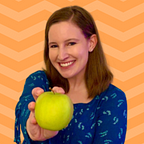Who Owns Our Crops and Seeds?
How the past several decades have transformed the agriculture industry, shifting power from farmers to four major agrochemical firms.
My father’s side of the family were farmers for generations. In fact, my grandma still lives in the old farmhouse where she raised a family and built a life. It must be decades since any animals roamed the yard or fields were plowed, but all the worn-out equipment and structures still stand.
As a child, I loved rummaging around and exploring the barns for hours on end. My cousins and I would get lost in the huge buildings. Climb all the enormous tractors and trailers, becoming absorbed in our imaginative games. Our clothes swiftly sodden with dust and dirt. What had once been used to sustain a livelihood became our play place.
A generation ago, you could raise a family while farming. That’s what my grandparents did, raised five kids on a family farm. It wasn’t a lavish lifestyle, but it was respectable. At the time, farmers had a lot of freedom to operate. The work was hard, but they were essentially their own boss.
For centuries, it was farmers who was responsible for growing crops, plant breeding, and seed collecting. Maybe they weren’t trained scientists, but they understood their work better than anyone else. They bred crops for higher yields, better pest resistance, and other…
